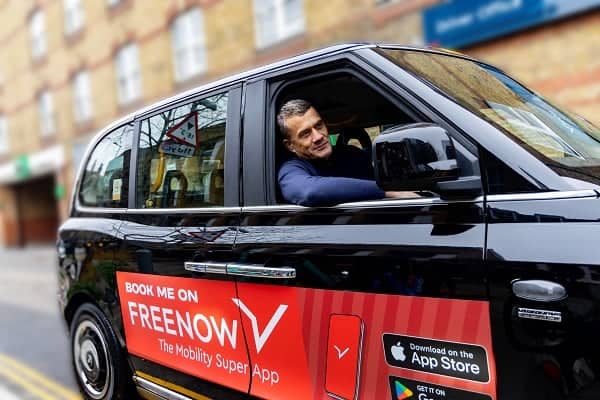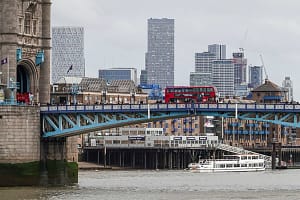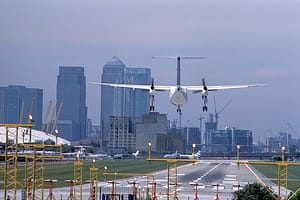According to a new report by Centre for London, if the number of taxis in London continues to fall at its current rate, there would be no Black Cabs on London’s roads by 2045.
The number of taxis licensed by TfL has declined significantly over the last decade. In 2013-14, 22,810 taxis were licensed to operate on London’s roads. This fell by over a third (34.5%) over the ten years to 2023-24. Today, the total number of Black Cabs in London stands at 14,470.
In contrast, the private hire vehicle industry, whose key players include Uber, Bolt and Addison Lee, has grown substantially since 2010. In 2009-10, the number of private hire drivers licensed by TfL was 59,191. By 2023-24, this total had grown by 82% to 107,884.
Losing London’s taxis will have a considerable impact on Londoners, with survey data showing that two-thirds (66%) of Londoners believe more should be done to support the trade.
In addition to their symbolic cultural status, Black Cabs are convenient, accessible, and safe. All taxis are fully wheelchair accessible, can be hailed from the street or found in strategically located taxi ranks around the capital, and are driven by a cabbie who has passed the world-famous Knowledge of London exam, a DBS check and regular medical checks. Londoners themselves consider the Black Cab to be a long-lasting fixture on the capital’s roads, with 78% believing they will still exist in 100 years.
According to Centre for London, since 2017 – when the new electric Black Cab was introduced – there’s been a 39% increase in upfront costs, in cash terms, of buying a new cab. This comes alongside reduction of financial support for taxi drivers. The TfL scrappage scheme, offering cabbies £10,000 to scrap old vehicles which weren’t low-emission zone complaint, ended in 2022. Meanwhile, the Department for Transports Plug-in Taxi Grant has dropped from £7,500 to £4,000 and will be ended entirely from 2026. This means from 2017 to 2026, the grant support available for purchasing a new taxi will have gone from £17,500 to £0.
There are now fewer new cabs on the road than ever before and very few new cabs being licensed. In 2024, just 104 licences were issued to new drivers, compared to 1,010 in 2016. The cost of a new electric Black Cab is a key factor.
Meanwhile, the world-renowned Knowledge of London is increasingly seen as a major barrier to entry for prospective drivers looking to enter the taxi trade. Taking -three years or more to complete, it also acts as a barrier for many Private Hire Vehicle drivers who wish to enter the Black Cab trade.
An industry survey found that while 52% of PHV drivers had considered becoming a Black Cab driver, 44% of PHV drivers said it took ‘too long to become a Black Cab driver’, and that 29% would not consider becoming a Black Cab driver because the Knowledge of London exam is ‘too hard.’
Antonia Jennings, CEO of Centre for London, said, “Black Cabs are a fundamental part of London’s cityscape. We must not let them become part of the capital’s history. Alongside their cultural status, cabs offer what Londoners need today – accessible, convenient and safe transport. We should not be removing these options off the street.
It’s simply unthinkable for London taxis to become extinct by 2045. Government must step up to support the Black Cab industry and turn this declining trajectory around, before it’s too late.”
Sam Pooke, Head of Public Policy at FREENOW, said, “Taxis are an integral part of London’s transport network, providing high quality safe, accessible journeys for millions of people every year. However, these findings show that without intervention from the Mayor of London, TfL, and central government, the iconic London black cab could soon become a thing of the past.
Despite costs rising substantially for taxi drivers in recent years, financial support from TfL and central government has become almost non-existent.
FREENOW strongly endorses the recommendations in this report, and we are calling on the Mayor to instruct TfL to set out a clear strategy for recruiting and retaining taxi drivers as part of its upcoming Action Plan.”
Steve McNamara, General Secretary of the Licensed Taxi Drivers’ Association from LTDA, said, “This important report highlights many of the challenges facing London’s licensed taxi drivers, most notably lack of road access, rising vehicle and operating costs, and the withdrawal of local and national government financial support to assist drivers in making the transition to zero emission capable vehicles.
“It proposes a range of concrete steps that the Mayor of London and TfL can implement NOW to prevent the worst-case scenarios outlined from being realised. I hope the recommendations are reflected in the Mayor’s forthcoming Taxi Action Plan.
“We’ve been here since the time of Oliver Cromwell, and we aren’t going anywhere soon but London’s iconic taxi trade is at a crossroads – with the right support we can cement its crucial role as fully accessible part of London’s transport mix and the world’s best and greenest taxi service. However, without such support our trade faces very real existential threats and these can no longer be ignored by policymakers.”






Leave a Comment